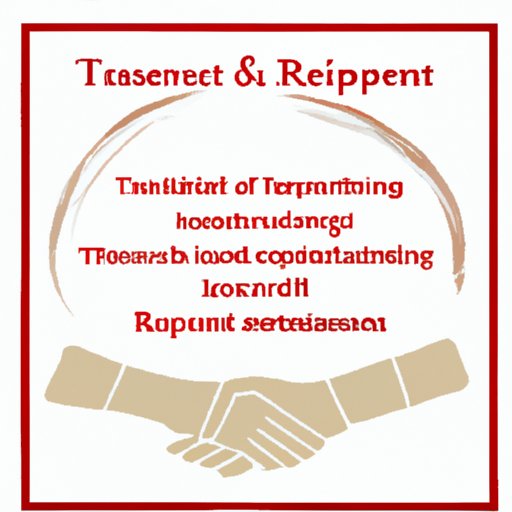Introduction
Personal relationships are an integral part of human life. They are the connections we have with the people who matter to us, whether they are family, friends, or romantic partners. Personal relationships bring joy, love, and support into our lives, and they help us grow as individuals. In this article, we will explore how personal relationships develop and what factors contribute to their success.
A. Definition of Personal Relationships
Personal relationships are defined as the connections we have with others that go beyond the superficial. They are built on a foundation of trust, respect, and shared experiences. Personal relationships involve a level of intimacy and emotional involvement that is not present in other interactions.
B. Importance of Personal Relationships in our lives
Personal relationships play an important role in our lives. They provide us with a support system during difficult times, they offer a sense of belonging, and they bring joy and happiness into our lives. Personal relationships also help us grow and learn as individuals. Being in meaningful relationships can increase our self-esteem and give us a sense of purpose.
C. Purpose of the Article
The purpose of this article is to provide an in-depth exploration of the various factors that contribute to personal relationship development. We will cover communication, trust and respect, shared experiences, emotional intelligence, vulnerability, conflict resolution and problem-solving, and personal growth and self-awareness. Understanding these factors will help readers build and strengthen their personal relationships.
II. The Importance of Communication in Building Strong Personal Relationships
A. Types of Communication
Communication is a crucial element in building strong personal relationships. There are several types of communication, including verbal, nonverbal, and written communication. Verbal communication involves speaking and listening, while nonverbal communication involves body language, tone of voice, and facial expressions. Written communication involves emails, text messages, and other forms of written correspondence.
B. Barriers to Effective Communication
Effective communication is essential to building and maintaining strong personal relationships. However, there are several barriers that can hinder effective communication. These barriers include language and cultural differences, physical barriers, emotional barriers, and perceptual barriers.
C. Tips for Effective Communication
To improve communication in personal relationships, it is essential to practice active listening, speak clearly and concisely, express emotions effectively, and show empathy and understanding for the other person’s perspective.
D. Importance of Listening Skills
Listening is a critical component of effective communication. It involves paying attention to the speaker, asking questions to clarify understanding, and responding appropriately. Good listening skills help build trust and respect in personal relationships and can help prevent misunderstandings and conflicts.

III. Understanding the Role of Trust and Respect in Personal Relationships
A. Definition of Trust and Respect
Trust and respect are two vital components of personal relationships. Trust involves having confidence in the other person’s reliability, honesty, and integrity. Respect involves valuing the other person’s thoughts, feelings, and opinions.
B. How to Build Trust and Respect
To build trust and respect in personal relationships, it is important to be honest, reliable, and consistent. Showing empathy and understanding, being dependable, and keeping promises are also critical elements of building trust and respect.
C. Importance of Trust and Respect in Personal Relationships
Trust and respect are essential for personal relationships to thrive. They create a safe and secure environment where people can be open and vulnerable with each other. Trust and respect also help prevent conflicts and misunderstandings and allow for open and honest communication.
IV. The Role of Shared Experiences in Developing Personal Relationships
A. Definition of Shared Experiences
Shared experiences refer to the activities, events, and moments that people share together. These experiences can be positive or negative and can range from everyday moments to significant life events.
B. Types of Shared Experiences
Shared experiences can include celebrating holidays together, attending concerts or sporting events, traveling together, or going through challenging experiences together, such as the loss of a loved one.
C. How Shared Experiences Build Relationships
Shared experiences help build personal relationships by creating a bond between people. They provide opportunities for people to connect on a deeper level and create shared memories. Shared experiences also help people to better understand each other’s values and interests.
D. Importance of Shared Experiences in Personal Relationships
Shared experiences are crucial for building and strengthening personal relationships. They create a positive emotional bond between people, help to establish common ground, and contribute to the overall quality of the relationship.
V. How Emotional Intelligence Affects Relationship Development
A. Definition of Emotional Intelligence
Emotional intelligence refers to the ability to understand and manage one’s emotions and the emotions of others.
B. Components of Emotional Intelligence
The components of emotional intelligence include self-awareness, self-regulation, motivation, empathy, and social skills.
C. Importance of Emotional Intelligence in Relationship Development
Emotional intelligence is essential in developing and maintaining healthy personal relationships. It helps people to communicate effectively, manage conflicts, empathize with others, and build trust and respect.
D. Tips for Increasing Emotional Intelligence
To increase emotional intelligence, it is essential to practice self-reflection, mindfulness, and empathy. Practicing active listening, managing emotions effectively, and communicating assertively are also crucial elements of developing emotional intelligence.
VI. The Power of Vulnerability in Building Deeper and More Meaningful Personal Relationships
A. Definition of Vulnerability
Vulnerability involves being open and honest about one’s thoughts, feelings, and emotions, even when it involves revealing one’s weaknesses or insecurities.
B. Benefits of Vulnerability in Relationships
Vulnerability is essential in building deeper and more meaningful personal relationships. It creates a sense of trust and intimacy, allows for open communication, and allows people to connect on a deeper level.
C. Tips for Being Vulnerable in Relationships
Being vulnerable can be difficult, but it is necessary for building strong relationships. Tips for being vulnerable in relationships include learning to trust others, taking small steps, setting boundaries, and practicing self-care.
VII. The Role of Conflict Resolution and Problem Solving in Strengthening Personal Relationships
A. Definition of Conflict Resolution and Problem Solving
Conflict resolution involves finding a mutually acceptable solution to a disagreement or problem. Problem-solving involves identifying and resolving issues before they become conflicts.
B. Tips for Effective Conflict Resolution and Problem Solving
To effectively resolve conflicts and solve problems in personal relationships, it is essential to listen actively, stay calm, communicate assertively, and be willing to compromise.
C. Importance of Conflict Resolution and Problem Solving in Relationships
Conflict resolution and problem solving are critical in building and strengthening personal relationships. They help to prevent misunderstandings and conflicts, create a sense of trust and respect, and allow people to communicate openly and honestly.
VIII. The Impact of Personal Growth and Self-awareness on Relationship Development
A. Definition of Personal Growth and Self-awareness
Personal growth involves developing as an individual, learning new things, and improving one’s skills and abilities. Self-awareness involves understanding one’s thoughts, feelings, and behaviors.
B. How Personal Growth and Self-awareness Benefit Relationships
Personal growth and self-awareness benefit relationships by allowing people to better understand themselves and others. It also helps to improve communication, build trust and respect, and create healthier boundaries.
C. Tips for Personal Growth and Increasing Self-awareness
To promote personal growth and increase self-awareness, it is essential to practice self-reflection, seek feedback from others, and set realistic goals for personal development.
IX. Conclusion
of Main Points
Personal relationships are an essential part of human life. Effective communication, trust, shared experiences, emotional intelligence, vulnerability, conflict resolution and problem-solving, and personal growth and self-awareness are all critical factors in building and strengthening personal relationships.
B. Importance of Applying Tips and Knowledge in Relationships
Applying the tips and knowledge outlined in this article is essential in developing healthy, meaningful personal relationships. It takes time, effort, and commitment to build and maintain strong relationships, but the benefits are well worth it.
C. Final Thoughts
Personal relationships are a journey that requires continual learning and growth. By applying the tips and knowledge shared in this article, readers can take steps to build and strengthen their personal relationships, bringing joy, love, and support into their lives.
(Note: Is this article not meeting your expectations? Do you have knowledge or insights to share? Unlock new opportunities and expand your reach by joining our authors team. Click Registration to join us and share your expertise with our readers.)
